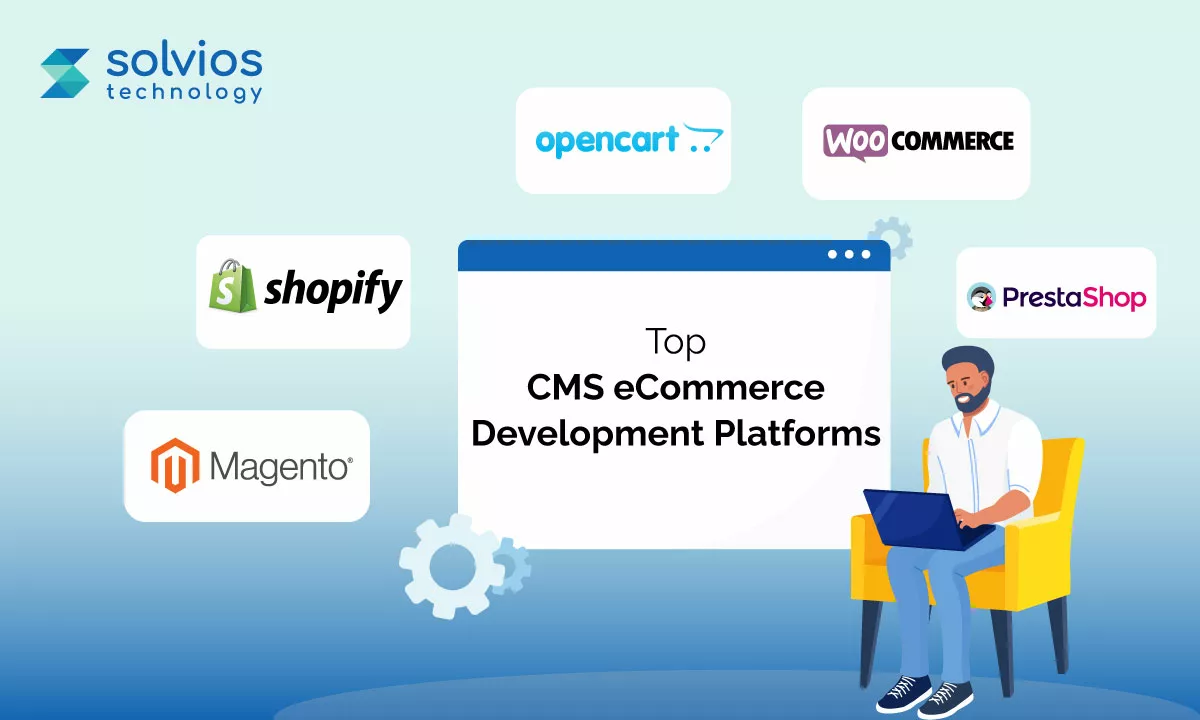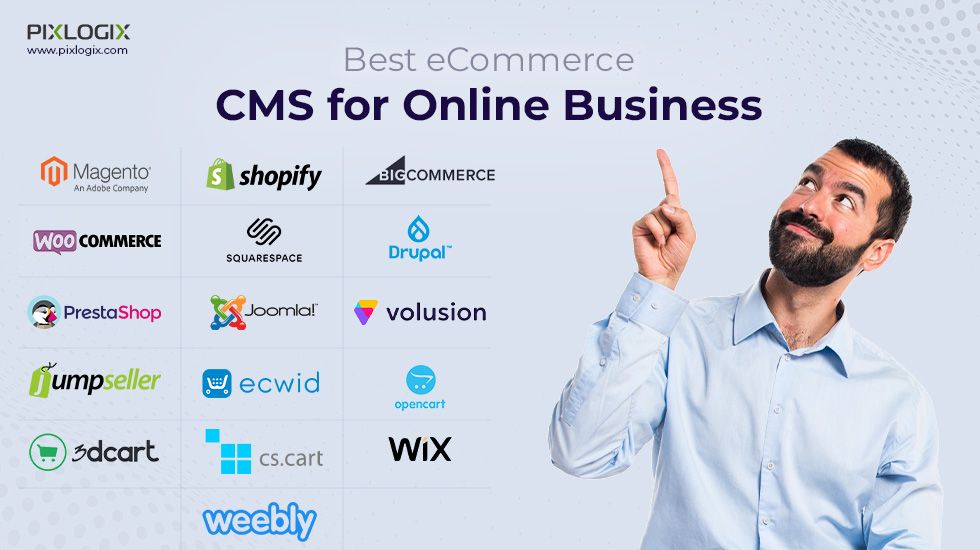Best Ecommerce CMS Platforms for Startup Growth: A Comprehensive Guide
Delving into the realm of Ecommerce CMS platforms tailored for startup growth, this guide aims to provide valuable insights and recommendations for entrepreneurs venturing into the online retail space.
Exploring the key features, benefits, and success stories associated with different CMS platforms will shed light on the ideal choice for aspiring Ecommerce businesses.
Overview of Ecommerce CMS Platforms
When it comes to setting up an online store, Ecommerce Content Management System (CMS) platforms play a crucial role in providing the necessary tools and functionalities to manage and run an Ecommerce business effectively. These platforms offer a user-friendly interface that allows businesses to create, customize, and manage their online stores without the need for extensive technical knowledge.
Key Features of Ecommerce CMS Platforms
- Easy-to-use interface for managing products, orders, and inventory.
- Flexible design options to create a unique and visually appealing online store.
- Integration with popular payment gateways for secure transactions.
- tools to optimize the store for better search engine visibility.
- Mobile-responsive design to cater to the growing number of mobile shoppers.
Importance of Choosing the Right CMS Platform
Choosing the right CMS platform is crucial for the long-term growth and success of an Ecommerce startup. The platform should align with the business goals, scalability needs, and budget requirements to ensure a seamless growth trajectory. A flexible and feature-rich CMS platform can adapt to the changing needs of the business and support its expansion.
Benefits of Using a CMS Platform for Ecommerce Businesses
- Cost-effective solution compared to building a custom Ecommerce website from scratch.
- Quick and easy setup process that allows businesses to launch their online store in no time.
- Access to a range of plugins and extensions for added functionalities and customization options.
- Centralized management of products, orders, and customer data for improved efficiency.
- Regular updates and security patches to ensure the safety and performance of the online store.
Popular Ecommerce CMS Platforms

When it comes to choosing an ecommerce CMS platform for startup growth, there are several popular options available in the market. Each platform offers unique features, pricing plans, and scalability options that cater to the specific needs of different businesses.
Let's take a closer look at some of the top CMS platforms suitable for startups.
Shopify
- Shopify is a user-friendly and easy-to-use platform that offers a variety of customizable templates and features.
- It has a range of pricing plans to suit different business sizes and budgets, starting from as low as $29 per month.
- Shopify is known for its scalability, allowing startups to easily upgrade their plans as their business grows.
WooCommerce
- WooCommerce is a popular plugin for WordPress that enables users to create fully functional online stores.
- It is a cost-effective solution as the plugin itself is free, but users may incur additional costs for hosting and extensions.
- WooCommerce offers a high level of customization, allowing startups to tailor their online store to meet their specific requirements.
Magento
- Magento is a powerful and feature-rich ecommerce platform that is suitable for larger startups with complex requirements.
- It offers both a free open-source version (Magento Community) and a paid enterprise version (Magento Commerce).
- Magento provides extensive customization options and scalability, making it ideal for startups planning significant growth.
BigCommerce
- BigCommerce is a cloud-based ecommerce platform that is known for its ease of use and robust features.
- It offers a range of pricing plans starting from $29.95 per month, catering to businesses of all sizes.
- BigCommerce provides built-in tools for customization and scalability, allowing startups to create a unique online store and expand their business seamlessly.
Factors to Consider When Choosing an Ecommerce CMS Platform

When selecting an Ecommerce CMS platform for a startup, there are several critical factors to consider to ensure the success and growth of the business. From mobile responsiveness to integrations and payment gateways, each element plays a crucial role in the overall performance of the online store.
Importance of Mobile Responsiveness and -Friendliness
Mobile responsiveness is essential in today's digital landscape, as more and more consumers are shopping on their smartphones and tablets. A CMS platform that offers a responsive design ensures that your website looks and functions seamlessly across all devices, providing a positive user experience.
Additionally, search engine optimization () plays a vital role in driving organic traffic to your online store. An -friendly CMS platform will help your website rank higher in search engine results, increasing visibility and attracting more potential customers.
Significance of Integrations, Payment Gateways, and Inventory Management Features
Integrations with third-party tools and services are crucial for expanding the functionality of your online store. Whether it's email marketing, social media, or analytics tools, a CMS platform that supports integrations allows you to streamline processes and enhance the overall customer experience.
Payment gateways are another essential factor to consider, as they directly impact the checkout process and payment security. Choose a CMS platform that supports multiple payment options and ensures a smooth and secure transaction process. Inventory management features are also critical for startups to efficiently track and manage their product inventory, preventing stockouts and optimizing order fulfillment.
Tips for Evaluating and Choosing the Best CMS Platform
- Consider your specific business needs and goals before choosing a CMS platform.
- Research and compare different platforms based on their features, pricing, and customer reviews.
- Look for a platform that offers scalability and flexibility to grow with your business.
- Test the platform's ease of use and customization options to ensure it aligns with your brand and design preferences.
- Evaluate customer support and resources provided by the CMS platform to assist you in setting up and managing your online store effectively.
Case Studies and Examples

In this section, we will explore case studies and examples of successful startups that have leveraged specific CMS platforms for growth. We will also delve into the unique features and strategies implemented by these startups, as well as how customization and optimization on a CMS platform have contributed to their success.
Furthermore, we will analyze the impact of choosing the right CMS platform on the scalability and sustainability of startup businesses.
Shopify: Case Study of 'Allbirds'
Allbirds, a popular sustainable footwear brand, utilized Shopify as their ecommerce CMS platform to build their online store. With Shopify's user-friendly interface and customizable themes, Allbirds was able to create a visually appealing and seamless shopping experience for customers. They also took advantage of Shopify's extensive app store to integrate features like product customization and social media marketing tools.
By optimizing their website for mobile users and implementing a streamlined checkout process, Allbirds saw a significant increase in conversions and customer retention. The flexibility of Shopify allowed Allbirds to adapt to changing market trends and scale their business efficiently.
Magento: Case Study of 'Huel'
Huel, a nutrition brand offering meal replacement products, chose Magento as their ecommerce CMS platform to handle their complex product catalog and international sales. Magento's robust features and scalability allowed Huel to manage multiple storefronts in different regions while providing a seamless shopping experience for customers.
Huel implemented personalized product recommendations and a subscription model through Magento's customization options, leading to higher customer engagement and recurring revenue. The platform's performance optimization tools ensured fast loading times and smooth navigation, contributing to Huel's rapid growth and global expansion.
WooCommerce: Case Study of 'MVMT'
MVMT, a trendy watch and accessories brand, opted for WooCommerce as their ecommerce CMS platform to establish their online presence. WooCommerce's integration with WordPress allowed MVMT to create a content-rich website with seamless product listings and a blog section to engage customers.
By utilizing WooCommerce's extensive plugin ecosystem, MVMT implemented features like abandoned cart recovery and email marketing automation to increase conversions and customer loyalty. The platform's flexibility enabled MVMT to experiment with different sales strategies and optimize their website for , resulting in improved search engine rankings and organic traffic.
Impact of Choosing the Right CMS Platform
- Choosing the right CMS platform can significantly impact a startup's growth and success by providing the necessary tools for customization, optimization, and scalability.
- A tailored CMS platform like Shopify, Magento, or WooCommerce can streamline operations, enhance user experience, and drive revenue growth through targeted marketing strategies.
- Customization options on a CMS platform allow startups to differentiate their brand, create unique selling propositions, and adapt to changing market demands effectively.
- Optimizing a CMS platform for performance, mobile responsiveness, and search engine visibility can improve online visibility, attract more visitors, and increase conversion rates for startup businesses.
Last Point
Concluding our discussion on Best Ecommerce CMS Platforms for Startup Growth, it's evident that selecting the right platform plays a pivotal role in fostering long-term success and scalability. By leveraging the insights shared here, startups can embark on their journey with confidence and strategic clarity.
Helpful Answers
What are the key features to look for in an Ecommerce CMS platform?
Key features include robust customization options, mobile responsiveness, -friendliness, and seamless integrations with payment gateways and inventory management systems.
How important is it to choose the right CMS platform for long-term growth?
Choosing the right CMS platform is crucial for long-term growth as it impacts scalability, user experience, and overall business performance.
Which Ecommerce CMS platform is known for its ease of use and customization options?
WooCommerce is renowned for its user-friendly interface and extensive customization features, making it a popular choice among startups.
What role do integrations and payment gateways play in selecting an Ecommerce CMS platform?
Integrations and payment gateways are essential for seamless operations, enabling efficient transactions and enhancing the overall shopping experience for customers.
How can startups evaluate and choose the best CMS platform for their specific needs?
Startups should consider factors like budget, scalability, customization options, and required features to align their business goals with the capabilities of the CMS platform.